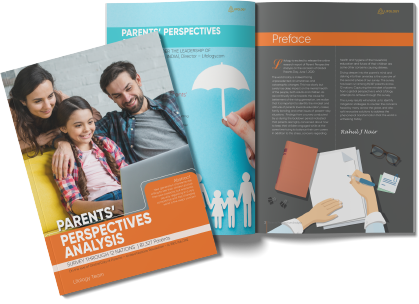Choosing the right university and major from thousands of universities, majors, and career options are the most challenging part for most of us. When the options are limitless many, don’t even have any idea where to start. Choosing a career from the millions of choices induces stress and anxiety in our children. Here are some prevalent anxieties present in the mind of an average teenager when they think about future careers
1.Uncertainty of what the future looks like:
According to researches, 85 percent of the jobs that will exist in 2030 haven’t even been invented yet. The child who enters an engineering course this year, may not have the skills that the industry is looking for when they graduate after four years.
Alternatively, this also means that we need to prepare our children for jobs that don’t yet exist, and we don’t know where to start. This could be because of a lack of education on career developments. Many of our schools don’t prepare our children for these careers and new-age skills. This causes considerable stress in teenagers when choosing a possible career path for themselves.
2. Fear of not finding a passion to base their career on:
“How can I choose a career when I don’t even know what I want for dinner?”
I’ve talked to many people who have mentioned feeling unmotivated because they don’t have anything to work towards. Not every child necessarily recognizes their true passion. Many of them are confused and have no idea of what they want. This leads to choosing a career based on more arbitrary things, such as family expectations, possible financial success, or trends. The issue with this is that there’s always the lingering anxiety of leading an empty, unsatisfying life. It isn’t easy to find your passion, as many teens don’t know how to find the intersection where their strengths match their likes and goals.
3. Uncertainty about whether their dream career is unrealistic
With the rise of social media, uncommon careers such as being a YouTuber or Instagram influencer have become viable sources of income. These careers are aspirational for many today, as it gives you creative freedom and complete flexibility. The idea of working in a 9-5 office job isn’t ideal for most people.
The stereotypical idea of sitting hunched up behind a desk, monotonous work, and tough bosses is unappealing, and today’s youth, with the world at their fingertips, are more likely to venture into unheard-of niches that are perfect for them. But when children come home telling their parents they want to be a fashion designer or an animator, the responses aren’t likely to be positive.
The elusive nature of these fields can make them concerned about their child’s financial security and their place in society, leading them to consider more secure options. Children can also feel discouraged by this and worry that if they push their parents to let them pursue this and don’t ‘make it’, they will be disappointed.
4. Fear of choosing the wrong career path:
Our students don’t get many practical experiences to be part of a workplace in their desired industry. With little to no work experience opportunities, they might have unrealistic expectations of what their job is like based on stereotypes from people or the media.
We live in a world where choosing a career based on passion is encouraged. However, this can create a fear of discovering that their passion was not based on reality. Many students don’t get enough time to sample all the different options available and are afraid of living unfulfilling lives.
5. Fear of letting down family members:
I’m part of an international community, and most of the people I’ve interviewed come from collectivist societies such as Asian countries where this fear is common. Many students feel pressured by their parents and societies to end up in a well-paying career.
“I don’t want to be a failure, as in like I don’t want to let myself and my family down.”
Especially if people want to pursue non-traditional careers that aren’t doctors or engineers, they are afraid of ending up unsuccessful, making their parents and other immediate family look incompetent in their society.
This fear combined with endless options and no experience leaves teenagers with many worries about their future. We request the parents to listen patiently to their children and guide them towards a fulfilling career in all aspects.
——————————————————————————————————————————————————
 Author
Author
Aparna Menon,
Brighton College – Abu Dhabi








